SUMMARY
This is AI generated summarization, which may have errors. For context, always refer to the full article.
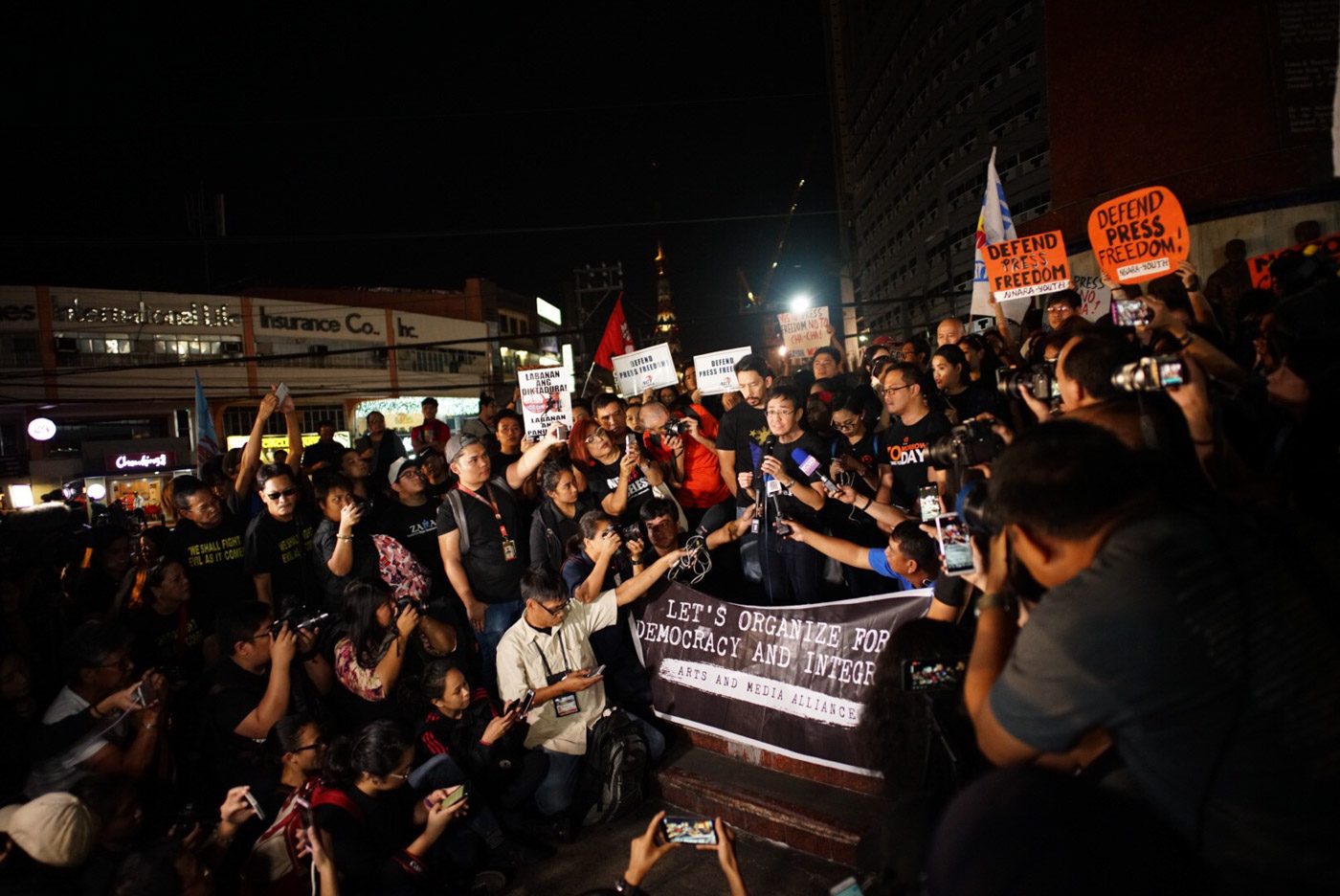
MANILA, Philippines – It was a rare image: Members of the media were on the other side of the lens, the subject of tonight’s coverage.
Four days since the Securities and Exchange Commission (SEC) revoked the registration of Rappler, press freedom advocates gathered at the Boy Scout Circle, the roundabout at Timog and Tomas Morato intersection in Quezon City at 6 pm on Friday, January 19.
Their collective stand: Defend press freedom.
“We’re going to hold the line. We’re doing journalism. We’re speaking truth to power. We’re not afraid and we won’t be intimidated,” Rappler Chief Executive Officer Maria Ressa said.
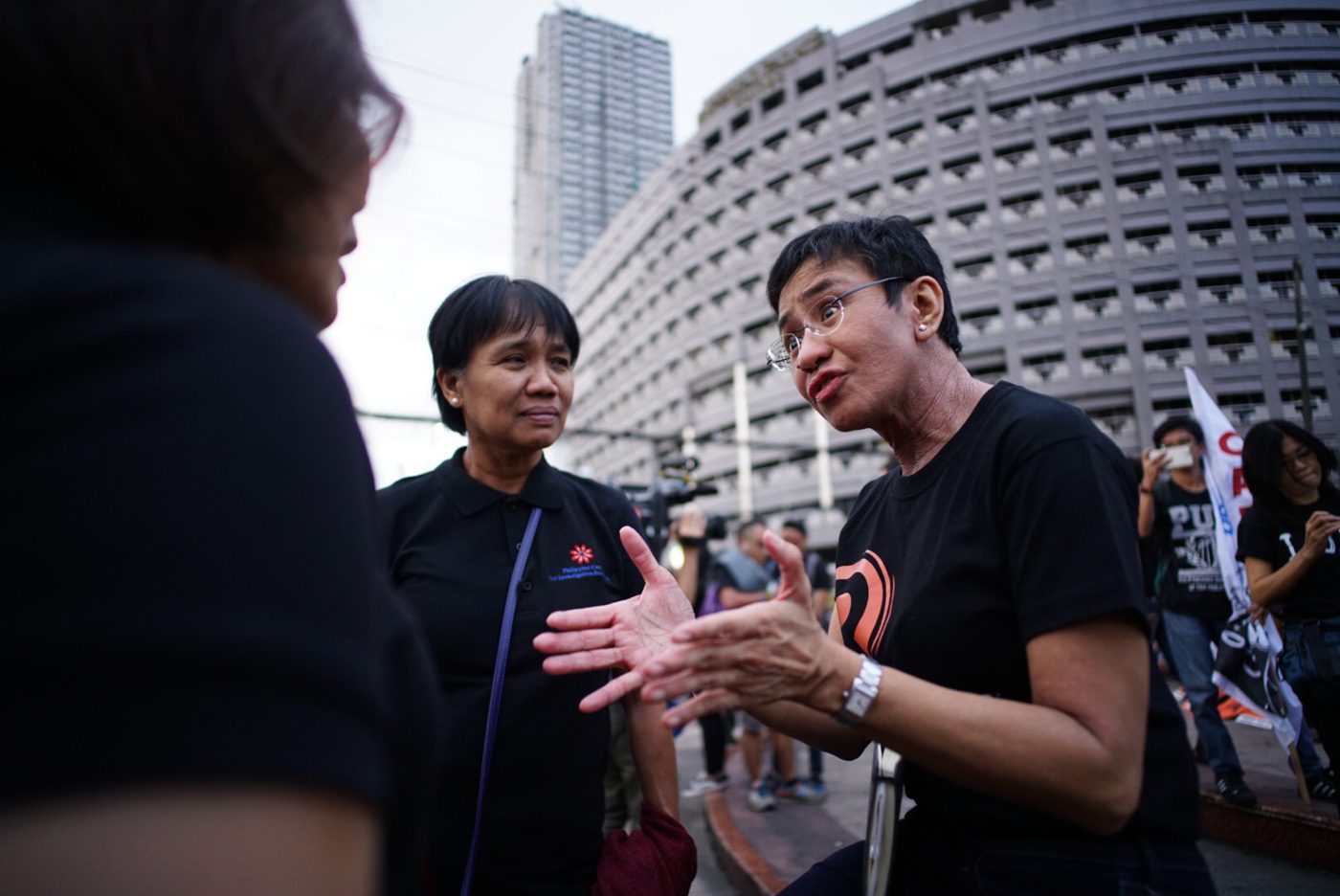
Dubbed as the #BlackFridayForPressFreedom, the gathering is just one of the many protests organized following the SEC ruling – one that is considered by many media groups as the worst assault on press freedom since Ferdinand Marcos declared Martial Law more than 40 years ago.
Attendees of the protest came from various sectors outside the media – bloggers, artists, students, and the academe.
Tonyo Cruz of the Let’s Organize for Democracy and Integrity (LODI) jumpstarted the gathering by urging members of the media to bring out their phones, cameras, and ballpens – their weapons at their line of work.
“Ipapakita natin sa taong bayan ang ating kasalanan. Ipapakita natin sa taong bayan ang dahilan kung bakit tayo pinaparushan ng president – ang paguulat ng katotohanan,” Cruz said. “Ito ang dahilan kung bakit kinikitil ang Rappler.”
(Let us show to the public our supposed crime. Let us show why we are being persecuted by the president – for reporting the truth)
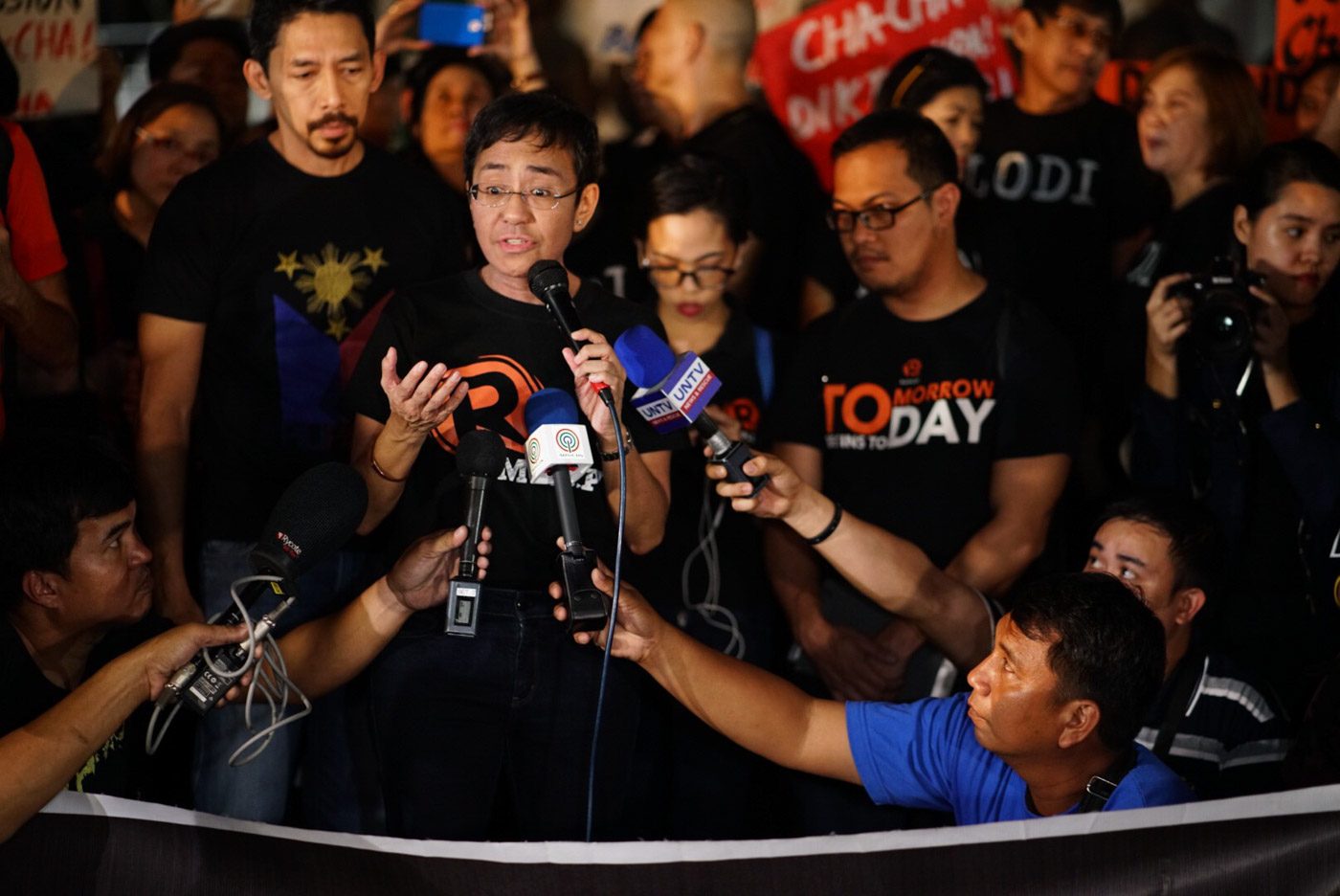
Déjà vu?
During the protest, Ressa emphasized that journalism is not a crime.
“We’re just journalists and yet there’s a lot effort being put in trying to make journalism a crime – which it should not be,” Ressa said, adding that both the SEC decision and the subpoena that she and a former reporter received on Thursday are political in nature.
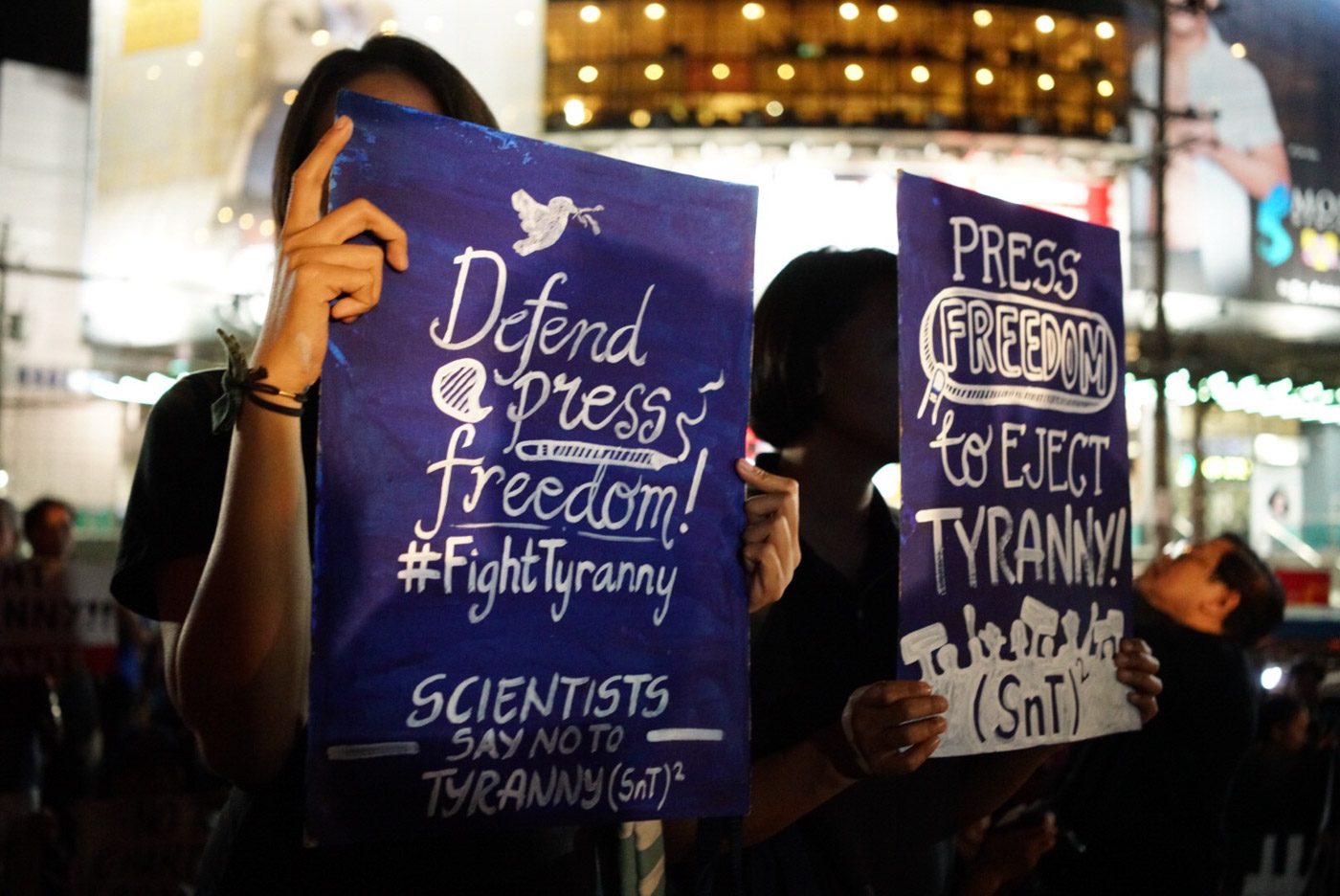
The online news organization is not alone in this. (READ: Campus journalists say press freedom is everyone’s battle)
According to the College Editors Guild of the Philippines (CEGP), many alternative media journalists have been tagged by Duterte himself as communist or members of the New People’s Army. One of them is Sherwin de Vera, an environmental journalist from Ilocos Sur who, according to CEGP was arrested for trumped-up charges of rebellion.
Kathyrine Cortez of media outfit Radyo ni Juan, on the other hand, has been reportedly harassed and tagged as a supporter of the Communist Party of the Philippines, according to CEGP.
Duterte has also threatened to block the renewal of ABS-CBN’s franchise and publicly criticized the Philippine Daily Inquirer for its supposed “slanted reporting.”
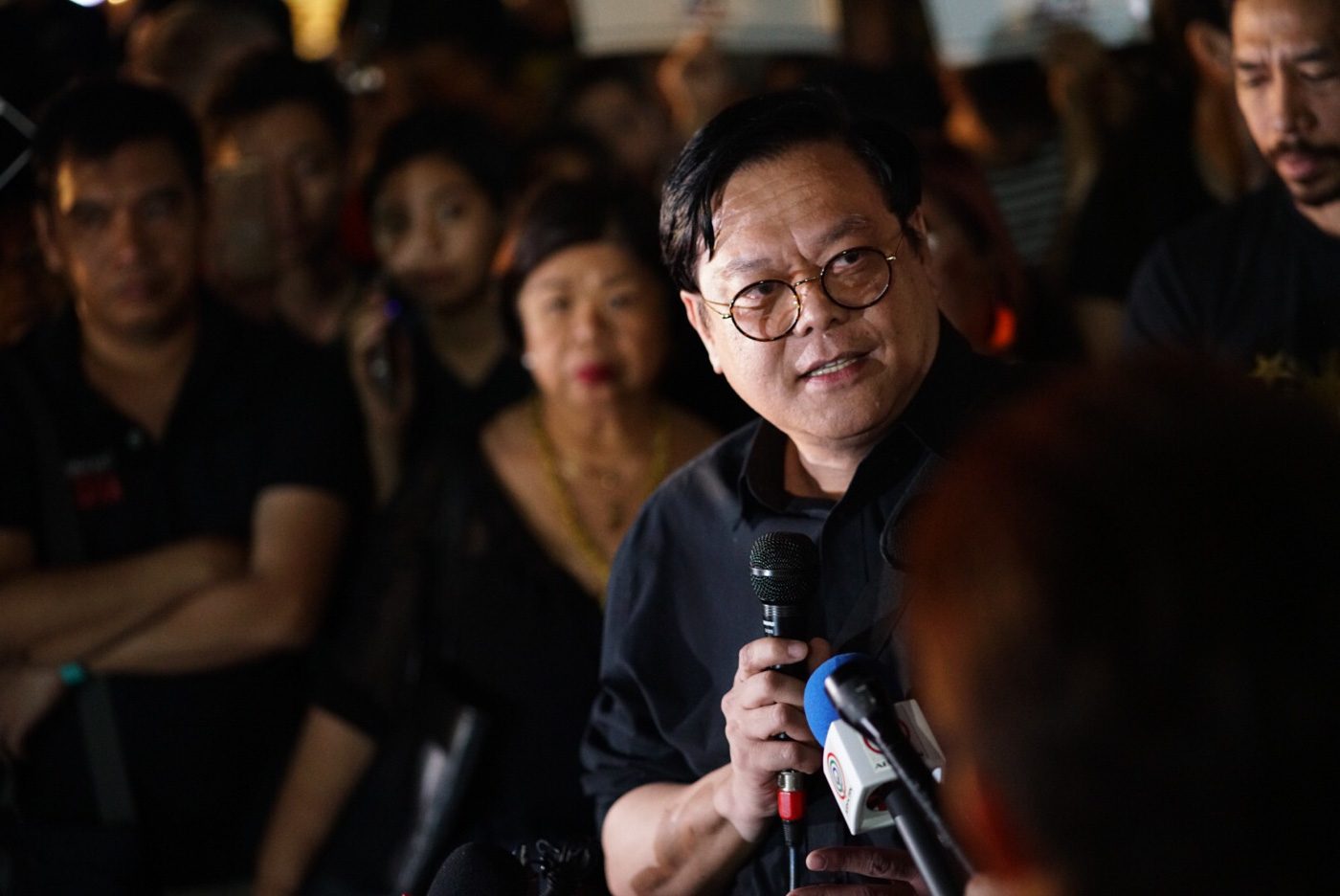
For these press freedom advocates, these series of attacks against the media are reminiscent of the crackdown against the press more than 3 decades ago during Martial Law, dubbed as the darkest chapter of Philippine history.
“Heto na naman tayo na kinikitil ang ating kalayaang mamahayag. Déjà vu ang tawag diyan kaya po alagaan natin ang fourth estate at ang freedom of expression,” Atty Mel Sta. Maria from Interaksyon said, adding that Rappler currently stands as the symbol of attacks against press freedom. (Again, they are trying to suppress our press freedom. We call this déjà vu. Let us protect the fourth estate and our freedom of expression)
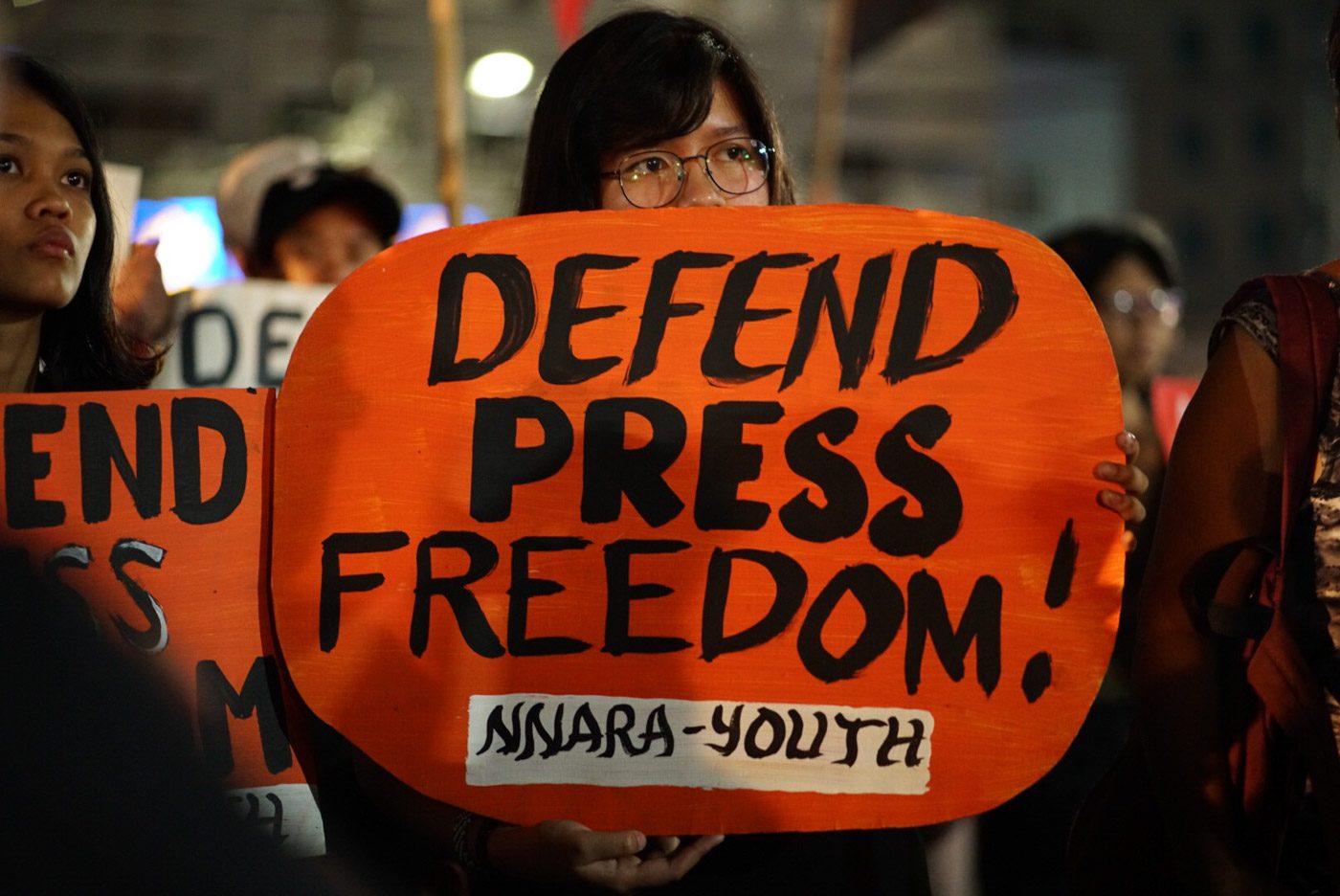
‘Stay with the story’
The protest, according to the attendees, goes beyond the issue of press freedom. It is also about the people’s right to know – the bedrock of other kinds of freedom enjoyed by Filipinos.
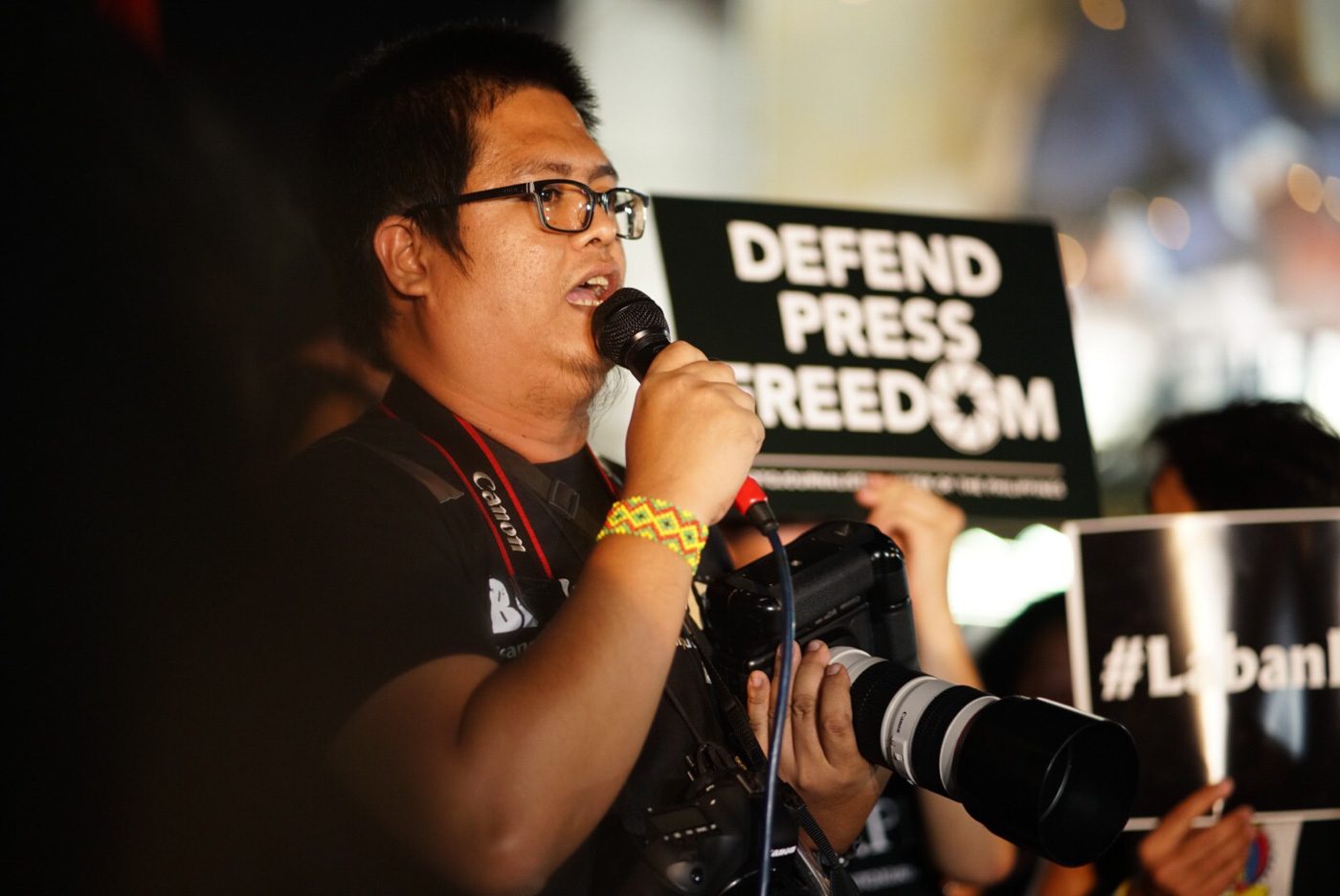
“Ang press freedom po nakasandig ang ating people’s right to know. Kung walang midyang malaya, walanng pwedeng magcover nang buo at walang hadlang tungkol sa Con-Ass, charter change, federalism, at iba pa” Malou Mangahas from the Philippine Center for Investigative Journalism emphasized. (Press freedom is anchored on the people’s right to know. Without a free press, no one will cover issues such Con Ass, Charter Change, federalism and others)
The veteran journalists have called on the public to stay with the story.
“Hindi pwede nating isulat ang story na ‘to nang kami lang. This is the story of the Filipino people wanting to free itself from undue punishment. overall ang nakasalalay po ay ang kaligtasan ng ating demokrasya,” Mangahas added. (We can’t cover this issue alone. This is the story of the Filipino people wanting to free itself from undue punishment. Overall, what is at stake is the country’s democracy)
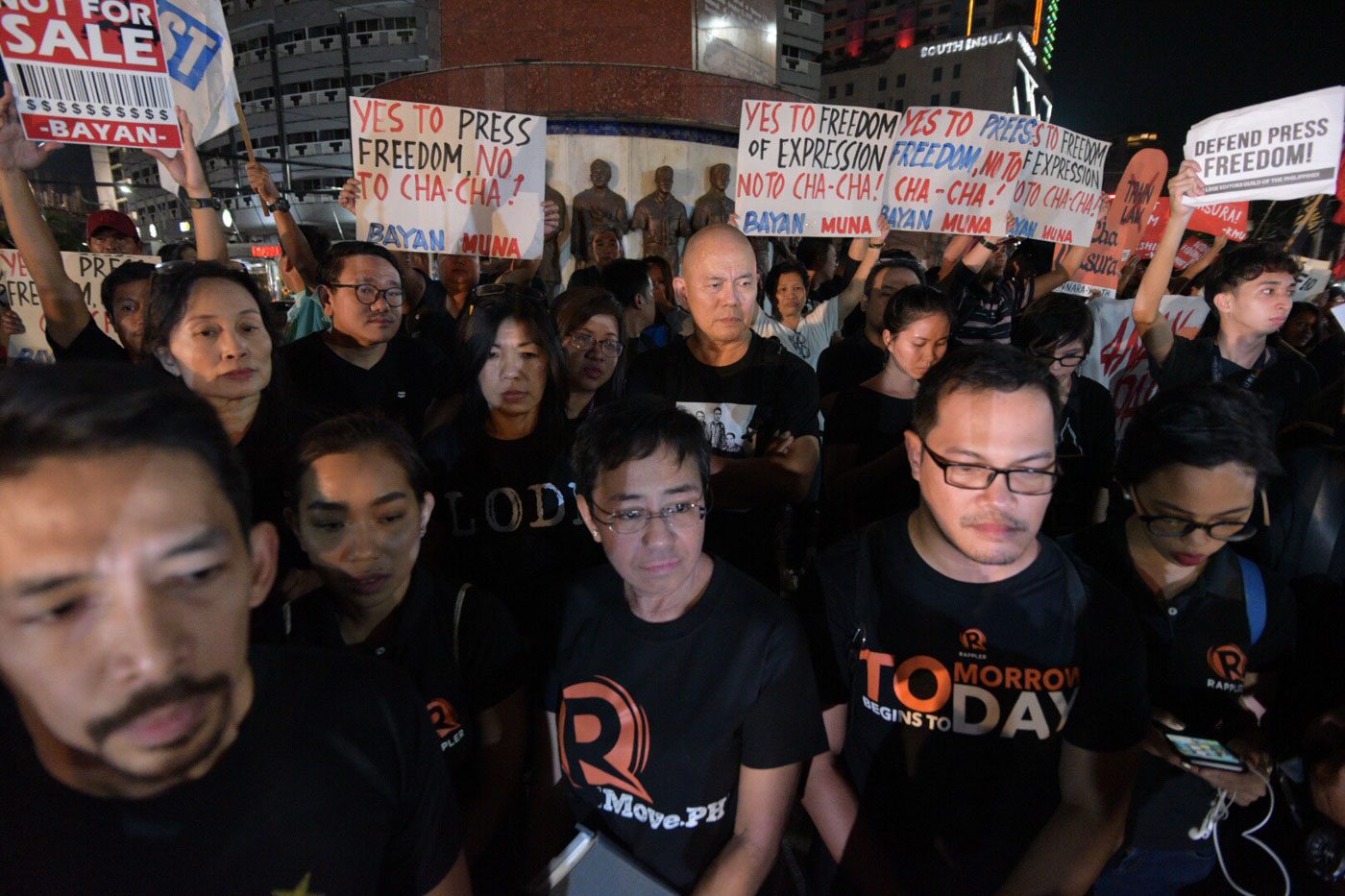
– Rappler.com
Add a comment
How does this make you feel?
There are no comments yet. Add your comment to start the conversation.